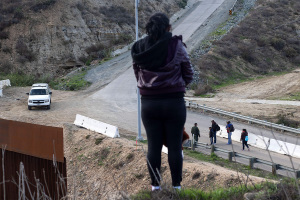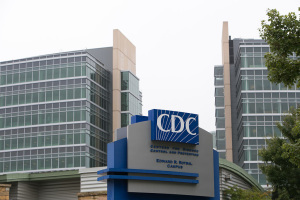Conference Bishops Tackle Issues Faced by the Current Day Catholic Church
Relief and accountability to clergy sex scandals tops list of issues
WASHINGTON – The delegates to the U.S. Conference of Catholic Bishops convened at the Hyatt Regency in Capitol Hill, Nov. 10, opening their three-day fall general meeting with an effort to reprove and improve the situation of the current day church.
With specific reference to the consequences of the 2002 clergy sex-scandals, the president of the council, Bishop Wilton D. Gregory began the conference with a call to “direct the energy of the whole church” towards the eradication of sexual abuse and the healing of its victims. The bishops subsequently approved the addition of one full-time and two part-time staff members in their Office for Child and Youth Protection, which would cost them more than $265,000 through 2005.
The bishops also focused on issues concerning agriculture, popular devotions, socially responsible investment, stewardship, conflict-of-interest policy and several liturgical matters, during their preliminary discussion; each topic is to be reviewed thoroughly throughout the three days.
Bishop Ronald M. Gilmore of Dodge City, Kan., chairman of the bishops' Ad Hoc Committee on Agriculture Issues, introduced the agriculture document by saying that "men and women are impaled on the jagged edges of this (farming) system."
According to Gilmore, the document was not "a typical conference document,” but one that offers a combination of pastoral messages and statistics from various government and private research agencies. The bishops will vote for the related “For I Was Hungry and You Gave Me Food: Catholic Reflections on Food, Farmers and Farmworkers” project on Nov. 12.
Bishop Donald W. Trautman of Erie, Pa., called a proposed document on popular devotions a pastoral statement that is intended to take a "supportive and encouraging approach" to such devotions in the lives of Catholics. The statement stresses that practices "do not replace the liturgical life of the church; rather they extend it into daily life."
Bishop Sylvester D. Ryan of Monterey Ca., offered a stewardship document aimed at asking young adults to change the world by using their gifts and skills. The bishops will vote on whether to accept the document by Nov. 12.
Archbishop James P. Keleher of Kansas City, Kan., asked the bishops to adopt a policy to prevent conflicts of interest in conducting business and to update their guidelines for socially responsible investing. According to Keleher, the current guidelines for conflict-of-interest policies do not reflect new concerns facing the church.
Cardinal Francis E. George of Chicago introduced two liturgy documents, one on concelebrated Masses and the other on the rites for Sunday worship in the absence of a priest. The vote for the liturgies will also be decided on Nov. 12.
Concerning international issues, representative bishops from around the world gave presentations and reports about their respective countries. Speakers included the bishop Paul Nguyen Van Hoa, president of the Vietnamese bishops’ conference and Archbishop Diamurd Martin, Coadjutor of Ireland and former Vatican representative at the United Nations.
Archbishop Martin, the former Vatican representative at U.N. agencies that are based in Geneva and former secretary of the Pontifical Council for Justice and Peace, spoke on issues of war and peace 40 years after the encyclical, "Pacem in Terris."
In the next two days, the bishops will not only finalize the various proposals, but will also elect a new secretary, chairman and eight chairman-elect for the Committee on Pro-Life Activities.




























